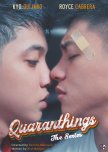
Based on the script by Rod Mármol, known for creating LGBT+ stories and characters such as those in 'The Super Parental Guardians' and 'Mata Tapang', the audiovisual is set in Manila, the Philippine capital, in times of quarantine due to Covid -19, and tells the story of Judah Dela Vega, a rich young university student who has to maintain social distancing in an apartment shared with several fellow students, but where he has been left alone due to the departure of the others due to the cessation of the classes motivated by the new coronavirus pandemic.
At home things are not better: his mother, Jane Dela Vega (LJ Moreno-Alapag), works abroad, and Lolly, his devoted grandmother (Gina Pareño) has rejected him after learning of his homosexuality and sends him to a camp. of conversion, so Judah refuses to return home with the lady.
However, his life changes when he crosses paths with Rocky Ilagan, a college classmate who has to work part-time because of the poverty in which his family lives, and who is forced to live in the same dormitory due to who has not been able to travel home to the provinces due to road closures.
The protagonists of the series are two broken boys, one for not having been accepted by his grandmother when he came out of the closet, which is why he has distanced himself from the person who raised him in the absence of his mother, and the other for hiding his homosexuality. before her mother when she read a text with a clear sign of suicidal instinct by preferring death instead of confessing her secret.
The main charm of the series directed by Pancho Maniquis (Stuck on You, 2021) comes from the relationship between the two young people, who build a very special bond. The chemistry between Royce Cabrera and Kyo Quijano, who play Rocky and Judah, respectively, is palpable: the two transmit tenderness, camaraderie and a lot of affection.
This helps a lot at a certain point in the plot in which the internalized homophobia of one of the protagonists threatens the love forged between the two, since the warmth is felt despite the conflict created.
Although the character of Royce is the one that receives the most development, and falls in love with his straight boy aura, the deep sensitivity in the struggle with his sexuality and for protecting the person he has fallen in love with, Kyo Quijano makes sure that We grow fond of his Judah because of the complexity of his character and the nuances he brings to it with his performance. We do not want any other ending other than happiness for the two lovers.
Royce acts precise and with innate naturalness, as always. He knows how to take his character to emotional levels without falling into drama. This young actor transmits at all times the transformation that occurs in his character. The casting work is absolutely right in his choice, given that he is able to understand and sentimentally reveal his character to the viewer.
This character's conflict lies in the fact that since his father is a priest, it is difficult for him to admit to him that he is gay. He never confesses his homosexuality to his deceased mother and the fact that he has not done so is something that haunts him.
Both actors have defended various LGBT characters. Royce Cabrera is known for playing the protagonists Ace Policarpo in 'Fuccbois' and Lito in 'Call Me Papi', and for participating in other feature films and series with homosexual themes, such as 'Where Is the Lie?', 'A Soldier's Heart' and 'B X J Forever'.
For his part, Kyo Quijano plays Bryan's boyfriend in 'Luv Express', and Freddie in 'Mahal Kita Beksman', a 2022 feature film.
The supporting cast also does a good job without ever stealing the show. Gina Pareño, remembered for her role as Nanay Flor in the 2008 film 'Serbis', plays a character who will end up accepting her grandson's homosexuality and supporting the relationship that he has begun to build with Rockie. With an infectious laugh, a cheerful countenance and many funny words, the actress reveals why she initially rejects Judah, and gives us more than one touching moment.
Domingo Cumla, in his first appearance on screen, also touches and manages to give nuances to his character beyond being the stereotype of a widowed father, loving and grateful for the kindness of his son, who provides monetarily and materially for the poor family.
Joining them is Beverly Cumla, whose acting debut took place in 2018 in the film 'A Country in Moving Pictures', and on this occasion she has a brief but memorable appearance as Rockie's sister. She will have a great role in the making of the series as editor and first assistant director.
'Quaranthings' stands out by virtue of its communicative power. No viewer will doubt the personality of someone who sleeps in a room with a photo of Alexandria Ocasio-Cortez, an image of Martin Luther King Jr. and posters of several Thai BL series hanging on its walls.
There are also interesting little details of queer coding that will not escape the public. The figures represented in the paintings in the room, the birthday cake candle that Royce holds in his hands, the birthday hats, the luminous decorative piece that rests on a nightstand, the alcohol bottles... The phallic references can be simple, but very effective.
Jan Silverio, known for his work in 'The Rain in Spain', plays Glenn Martinez, a character who correctly fulfills his role of making Royce jealous, as this young man shows interest in having a purely sexual relationship with Judah.
On the other hand, Karl Zarate not only plays Beshie, Judah's faithful boy friend, but also sings "Sansinukuban" (My Universe), the main theme of the series, by Pancho Maniquis and Fitz Shioda.
Kyo Quijano also shows his vocal skills, performing "Ipu-Ipo", by Fern Tan, Pancho Maniquis and Othello Intia.
In addition to its LGBT+ theme, the series, of 8 episodes with an average of 25 minutes each, is distinguished by how it deals with topics such as sexual orientation, gender identity, coming out, social and class differences, and the conflicts of young people regarding these. Judah has already come out of the closet and his main objective in this area is the search for pure love, while Rockie is afraid to recognize his sexuality in a patriarchal and heteronormative society in which men hide their homosexuality and silence their emotions.
This authenticity in portraying the conflicts of young people who are still in the closet for fear of expressing and understanding their feelings reminds us of the importance of queer communities telling their own stories. The creators know the subject and this is reflected in the final work.
Made with great care and love for a young audience, 'Quaranthings' is an adorable romance that also deals with important social and political issues without falling into clichés in telling a story about finding love in times of quarantine.
Joseph Javellana's cinematography, Newt Lobete's camera work, art design, production design and editing all contribute to a quality product, which I recommend to anyone interested in appreciating a beautiful romance.
Was this review helpful to you?

Filmed in Beijing and released in 2014, the film tells the story of Hu Kun, a young car driver (played by Lu Yulai), tasked with transporting Wei Zishan, his disdainful and callous boss (played by Li Quan), from a from one place to another in the Chinese capital, without the two men exchanging a single word.
In addition, he is also responsible for taking care of the daily life of the boss, a man who is going through two crises, one of mid-life and one of marital breakdown, and occasionally comes into contact with his superior's wife (Li Xinyun) and other close people. to the character played by Wei Zishan.
The film had its world premiere in 2014 in one of the main cinemas in the Chinese capital, an opening ceremony attended by the two protagonists and the director.
With a script by Fan Jiu Wei, the 29-minute film tells how the serious and taciturn driver is responsible at work, but has his own hidden motives: he is deeply in love with his boss. Due to the enormous difference in identity and social status, added to the fact that he hides his homosexual condition, the driver represses his emotions, but secretly hopes to be able to satisfy his passions one day.
'Boss, I Love You' is the third short film by independent film director Zhang Yuan, and is also one of the works of Youku's "Master Micro Film" from 2014.
As in his landmark film, 'East Palace West Palace' (1996), director Zhang Yuan explores same-sex attraction in the context of power relations in contemporary China, this time as part of the production from the Hong Kong International Film Festival, Beautiful (2014).
While the previous film linked a hapless citizen to ruthless, seductive power ("the prisoner loves his jailer"), in 'Boss, I Love You', the conflict arises from the socioeconomic inequality that leaves the dispossessed pining for what they can't have.
Presented at the International Institute of the California University of Los Angeles (UCLA), as part of its 2014 China Screen Biennial: Spectrum, and awarded at the HK International Film Festival in 2014, 'Boss, I Love You' is co-produced by its two protagonists Li Quan and Lu Yulai.
Graduated in 1989 from the Photography Department of the Beijing Film Academy, after directing 'East Palace and West Palace', Zhang Yuan returned with a same-sex love story in 'Boss, I Love You'.
Known internationally for directing 'Mama' (1999), a combination of documentary and fiction, film and video, which was the first Chinese independent feature film since 1949 and is credited with launching the "Sixth Generation", as well as the "Urban Generation", Zhang Yuan made a series of "underground" films, often inspired by local countercultural movements, such as the indie rock scene 'Beijing Bastards', from 1993, the film 'Sons', from 1996, or the gay subculture, in which 'Boss, I Love You' is inserted.
Starting with 'Seventeen Years' (1999), the Chinese filmmaker made several successful feature films, among which 'Beijing Flickers' stands out.
Was this review helpful to you?

When devotion becomes obsession
Franco risks his life and freedom with years in prison when he begins stalking Brent Barcelon, a local celebrity. The problem is that attraction gives way to devotion and this to obsession, and that complicates things, because the Filipino prostitute boy takes his desires to the limit, showing his sickest version. He may be handsome and have a statuesque body, but behind that another truth is developing.'Lodi', idol spelled backwards, is a low-budget, slow, soft-core Filipino porn film from 2017. The protagonist, named Franco, a young sex worker with a beautiful body, is criminally obsessed with a straight boy.
Finally Franco, who visibly does not regret his actions, takes the path of stalking, theft and violence, all with the goal of possessing the boy who sparks his obsession.
The protagonist, who realizes that he could never have a romantic relationship with Brent, pursues him, and discovers where he lives. In this way, he comes to occupy a position as a maintenance manager in his condominium, with the sole purpose of being close to the object of his obsession, without considering the ethical, criminal, legal consequences and harm to himself and other people.
As she commits her crimes, the director and cinematographer simply enjoy the view of her naked body for much of the film. I'd be lying if I said I didn't enjoy it too.
The film reflects the involution of a human being as he goes towards his wild instincts, the lowest, twisted and darkest. Franco does not like to deceive and manipulate his clients. Their friend Tiger (Carlo Mendoza), another prostitute, drugs them before robbing them. The protagonist of the story rejects this action.
However, carried away by his dangerous obsession, he also decides to commit the crime, and drugs and rape come into play.
As we can see in the images, 'Lodi' has an important erotic charge with scenes of paid sex and domination sex, but others are not real, as they are recreated in the imagination of the protagonist, who sees himself having consensual sex with Brent.
These explicit sexual scenes (completely removed from the universe of pornography) provide absolute meaning to the story of the protagonist and the plot of the film.
In every erotic drama there is an almost tacit rule: the irrationality of the acts must be recorded, stripping them of a moralistic perspective, but trying to unlock the reasons for the magnetism that leads its protagonists (again and again) to approach each other in the context of the forbidden and even crime. 'Lodi' starts from that guideline, and does it accordingly.
This homoerotic film is directed and written by Tim Muñoz, and stars JM Martinez as Franco and Ace Toledo as Brent.
It was made with a modest budget, which helps it succeed with its proposals.
JM Martinez shines in his role, reflecting an individual whose attraction for another boy grows in crescendo, giving way to an unhealthy obsession that leads him to commit unforgivable crimes. It only takes one sequence of the several that exist in the 79-minute duration, and which lasts just five minutes, to persuade the viewer of the monster that has been created.
JM Martinez's performance is overwhelming, considering that the best tool to reflect his character's obsession was to remain with an averted, inert gaze, with an imperturbable face despite everything he has been planning to carry out his evil plans.
The disruption generated by Brent's presence in the life of a young man who seems to have everything resolved in his life thanks to the sale of his body, is reminiscent of what occurs in other films by the director, such as 'Don Filipo', in the one in which a man becomes obsessed with dominating another to take away his heart and be able to achieve eternal youth.
For his part, the character played by Ace Toledo convincingly demonstrates that he is oblivious to what has been brewing around him such an abject being, whose actions border on the implausible, even within the codes of this story, where instinct takes precedence over any more thoughtful thought.
Both actors starred in 'Hombre', the first feature film by Tim Muñoz and after the short film 'Estranghero' (2016), an erotic film in which JM Martinez and Ace Toledo play LGBTQ+ characters with nude scenes and extreme sexual content.
The supporting cast also contributes with their realistic performances. It's filmed almost in a documentary style and that lends credibility to the whole storytelling aspect of the story.
In his third film, and with the erotic eye of Gregg Araki and Gus Van Sant, Tim Muñoz, whose scripts are in the Filipino vernacular, but always provide subtitles to reach an international audience, also portrays a reality in the world since Antiquity : a fan's devotion to his idol, but taken to unimaginable consequences.
We all, to a greater or lesser extent, feel admiration for an equal, for their peculiarities and characteristics. In many cases, this admiration can be identified with a type of behavior that in psychology is called "idolating", and refers to the assessment and recognition we make of another person, but exclusively focused on their positive qualities.
The ending is cruelty so harmonious with the general story.
Was this review helpful to you?
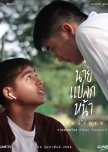
A short with a queer touch and a universal story
"Each person who passes through our lives is unique. They always leave a little of themselves and take a little of us with them. There will be those who will take a lot, but there will not be those who will leave us nothing. This is evident proof that two souls do not meet by chance", Jorge Luis Borges.'The Stranger' is a drama that addresses a chance encounter between a young university student and a stranger with whom he seems to create a deep bond, and whose presence attracts him spontaneously. Likewise, the short film portrays the chemistry in relationships, and allows us to observe a series of behavioral and physical manifestations that show the existence of a deep affinity between both.
The protagonist of this story is Him, played by Cheerafat Keowlek in his acting debut, a lonely and shy student from the province, who, with a camera in his hands, arrives at the emblematic Lumphini Park, in the Thai capital, to carry out a university project. Bath (Pongrak Chulanon) walks through the place, known for playing a supporting role in the 2021 series 'Loveless Society', who on this occasion plays a young worker, somewhat older, who has been waiting for a long time for his girlfriend to finish the workday to take it to her house.
The encounter with a stranger guides the protagonist of this story to a place equally unknown to him, full of doubts and uncertainties, but also well-being, joys and emotions.
The film begins when two strangers exchange a couple of words. The plot begins in that brief one-on-one conversation in which the characters, uncomfortable, measure distances and points in common, establishing a development that determines the plot of the next 22 minutes. The truth is that the interactions bring emotions that will not allow us to leave our seats, and from minute zero we fall in love with the two protagonists, waiting for their frugal meeting to lead them to embark on a romantic love story.
I like how the characters get carried away by the moment, leaving their lives on hold, and somehow ignoring the objective of why they are there, giving themselves over to the other person and the advancement of the plot brought about by their meeting.
'The Stranger' tells of an awakening towards friendship, but it could also be towards something much deeper, when a young man realizes that he is attracted to the stranger who sat next to him on the shores of a city lake, after reaching him a few lost hearing aids.
The short film, written and directed by Pipat Wattanapanit, director of 'Loveless Society', also tells us about the search for trust, security, shelter, understanding and complicity in a stranger whom we may never see again.
Based on the film 'The Stranger', by Miranda, the script is concise and all the dialogues, although quite simple, well establish the closure of the audiovisual production on how the two protagonists relate to each other in their brief meeting.
The performances are correct and complement the idea that the protagonists create a bond that could be the prelude to a beautiful friendship and, why not, a love relationship. The two characters embody their roles and well convey the emotions and discomfort present at the beginning of the meeting, with Cheerafat Keowlek acting as a reserved young man who little by little opens up to the nobility and delicacy of a stranger who catches his attention a special way, and Pongrak Chulanon as a relaxed, optimistic, self-confident individual, but with an aura of mystery that equally captivates the viewer.
It is a pleasure to see the two actors interact, that their different personalities collide and convincingly show the attraction through curiosity, non-verbal language, contact, including visual contact, the fluttering of pheromones to have a feeling.
The production is well shot, making good use of location work and different angles, with powerful images, photographed by Pratchaya Pethwisit. Each scene integrates well with the other, giving the film a nice flow from the first frame to the last.
The soundtrack deserves special mention. The music is written and produced by Sarakorn Rujirawannakorn, whose main theme is titled "Stranger", a song performed by actor Pongrak Chulanon. Well chosen, it also does a great job of making transitions between different scenes and recreating the feelings and emotions that overcome the protagonists.
The narrative is presented as a clear vision with a great flow that will keep the viewers engrossed till the end.
The director is a talent that must be paid attention to and followed in his future productions.
Was this review helpful to you?

A moving look at the challenges and triumphs that accompany coming out
There are films that seem to be built more from emotion than from reason and that, by making a virtue of necessity, are capable of crossing borders and penetrating the depths of the heart. 'Coming Out' ('Kamingu Auto', its original name in Japanese), is clearly one of those films.The tenderness and care with which this raw story of a homosexual university student who hides his homosexuality and decides to come out of the closet to his family and friends, in addition to confessing his love to Noburo, his best friend, is treated from the first moment, supplements any possible technical or artistic deficiency.
In the end, within this story, the issue of homosexuality appears almost as a footnote and what is really underlined is that what matters is that LOVE will always remain LOVE, and no one can break that.
So anyone who tries to approach this film in search of morbidity and bait may already forget about the subject. The only thing we find here is a beautiful love story full of meaning and loaded with sensitivity.
Ang Lee had already warned us in another story that took place at the foot of the Brokeback mountains. Being oneself and loving fully becomes practically impossible when desire comes face to face with the wall of the laws of an unjust society that decides in advance what is good and what is not. Laws solely based on prejudices that use any shortcut – homosexuality, for example – to condemn what is not considered correct. A society that prejudges and takes the behavior of others so lightly can only be a sick society. Those who have suffered it in some way and in a similar situation know that a story like this could only be born from the viscera and woven with the threads of pure emotion.
In his debut as a screenwriter and director, japanese filmmaker Inudo Kazutoshi ('Crack', 2015) weaves a story in which Akami Yo, an ordinary homosexual college student who enjoys spending time with his friends, has decided to come out of the closet.
Given the insistence of his family and friends to introduce him to his girlfriend, or the demands of when he is going to get married and have children, the protagonist decides to communicate his sexual orientation to the people around him and who are important in his life, after having accepted herself with that orientation.
The film explores what is perhaps one of the most complicated and at the same time most satisfying decisions in the life of every homosexual. Tired of living pretending to be someone else and, despite feeling afraid of being rejected by others, the boy has decided to take the step, within a conservative family, a heteronormative and patriarchal country that does not recognize marriage between people of the same sex and with high levels of homophobia.
'Coming Out' is a drama with no more pretensions than those indicated in its premise, and it is clear that the director and screenwriter intends to highlight the general attitude of society regarding the issues of the Japanese LGBT community. In that sense, it seems very educational and almost preachy at times, but the purposes of making a film like this in a country like Japan is understandable.
I find the part where Yo talks to his parents the most intriguing and I can imagine that many viewers will be able to identify with it. It's a little cheesy to be brutally honest, but I find it endearing.
First he will talk to his sister because he may feel more comfortable addressing the topic with her, then with his parents and finally with Noburo, who in addition to being his best friend is the boy he likes.
The only ones who know Yo's secret are Tsuyoshi and Madame, two gay employees of the "Bb" bar where he usually goes, and a girl who frequents the same, who will encourage him to come out of the closet.
Despite its seemingly trite theme, this film tells the story honestly by showing the harsh reality of a world in which people hate or fear those who are different. For a homosexual to fit into Japanese society it seems to be necessary to hide one's true identity and repress what one really is.
Also noteworthy is the performance of the protagonist, Takahashi Naoto ('Tokumei Sentai Go-Busters'), who manages to intensely convey the feelings of a complex character.
The cast is closed by Taiji Utagawa, Fumika Ichinose and Kosuke Akiyama (TooT Aki), who in fact came out of the closet in the Japanese media.
The film was so popular that it was sold out at an advance screening at the 23rd Tokyo International Gay and Lesbian Film Festival.
The viewer may like how the camera closes on the protagonist's face when he confesses to his sister, before moving on to her. Likewise, the split screen color and Yo's internal dialogue.
On the other hand, the film presents organizations and self-teaching material about the lives of LBGTQ+ people and a critique of their media representation, something significant if we take into account that it was filmed in 2014.
Despite being a film with a strong dramatic charge, it gives you the dose of energy, optimism and empowerment necessary to go out into the street and proudly shout what you feel.
The message is not only one of self-acceptance, but also of fighting for our rights, offering a moving look at the challenges and triumphs that accompany coming out and the process of accepting oneself.
Was this review helpful to you?

A beautiful love story full of meaning and loaded with sensitivity.
'Hello Stranger: The Movie' is one of those feature films capable of crossing borders and penetrating the depths of the heart.Both a romantic comedy and a coming-of-age film, the film follows in the footsteps of the characters from the series of the same name, released in 2020.
On this occasion, Dwein Ruedas Baltazar, the Filipino actress, editor, screenwriter and director, known for telling stories focused on identity and sexual diversity, such as 'Sila-Sila' and 'KALEL, 15', takes a position behind the cameras, while Daniel S. Saniana and Patrick R. Valencia, writer of the script for the film 'The Third Party' and the series 'Hello Stranger', come together to write the film text that will cause a roller coaster of emotions in viewers.
Xavier and Mico's relationship deepens, while the well-known gang of Young Padawans, Kookai (Vivoree Esclito), Seph (Patricio Quiroz) and Junjun (Miguel Almendras), and a large group of University students, including Crystal (Gillian Vicencio), Xavier's girlfriend, go to a writing camp, taking the virtual kilig to the real world, just in the days around Valentine's Day.
The feature film, 101 minutes long, continues where the series left off and the story develops as the film progresses, adding new characters and a new, although familiar, conflict between the two male protagonists, in a post-pandemic environment.
The flashbacks of the intervening months clearly explain why the protagonists acted in this way and how they felt motivated to carry out the actions that led Xavier and Mico to distance themselves.
Following the premise of the series, the film defends the idea of honesty, and is revealing for those who hide their true identity. With just the right drama, it exposes only honest feelings waiting to be expressed from one towards the other, seen from Xavier's public confession, almost in one of the final scenes, of being in love with another man. He had already confessed it to his parents before.
It is never easy to confess deep emotions, but the protagonists, faced with the risk of losing the person they love, find the courage to express their feelings, and thus find the freedom that a patriarchal and heteronormative society denies them, which tells you that loving someone of your same sex is not correct.
The acting of the protagonists is great. The character of Mico, played by JC Alcantara, quite emotional as an actor, will bring tears to your eyes through his pain, and laughter due to his contagious joy and overwhelming joy, with his expressive eyes, sometimes tearful, sometimes smiling, and marked dimples that furrow his face.
There is something very special about this young actor. He has the ability to access the soul of his character and really moves the audience. I hope to see more of him in film and television.
For his part, Tony Labrusca, in the role of Xavier, surpasses himself this time, giving new nuances to his character.
Both actors, with amazing chemistry that exudes genuineness, convey love outside the heteronormative bubble with such reverence and authenticity.
If in the series they had already demonstrated their histrionic skills and the comfort of working together, they take the film to another level of brilliance, far exceeding our expectations. From his comic scenes to the big, dramatic speeches, his lines are full of intensity and realism.
This is a wonderful movie. The performances are simply incredible, highlighting the role of Tony Labrusca. This young actor gives a performance so tender and realistic that it makes my heart tighten every time I watch the film.
There is a dramatic scene after the tug of war that really shows off the great performance of the two actors. And the final scene is tender and charming and the filming with the beginning of the song makes it a classic.
Mico's inseparable friends are still here and once again give him their support in the search for happiness and love. Kookai, Jujun and Shep will make you wish you had them in your life and the movie never fails to emphasize that. The audience will be treated to one of my favorite scenes: the one in which the Young Padawans play "Shageddy Shapopo" near the end, such a strong symbolism of how close the friendship of the four young people is.
The new supporting cast are seasoned characters and add color to the film.
Another important point, like a good film by Dwein Ruedas Baltazar, is the soundtrack, with the musical direction of Glenn Barit, in which its main theme stands out, "Kahit Na Anong Sabihin Ng Iba", performed by the same actors, who since It already occupies an important place among my favorite music.
Some of the songs that help us understand the moods of the characters are "She", (performed by Sab), "Pangako" (Kyle Echarry), "Dahil Sa'yo" (Inigo Pascual and Gabriel Tagadtad, "Kung Akin Ang Mundo (Christian Martinez), and "Mahal Ko O Mahal Ako" (KZ Kandingan). This last song is about who has to choose between two people.
The movie may stand alone, but I would recommend you watch the series first.
Was this review helpful to you?

This review may contain spoilers
From time to time you can see movies with real and controversial themes with gay characters
Homophobia, which can be expressed both manifestly and subtly, has been brought to film from various approaches and cinematography. One of the films that addresses this issue, even from its symbolic and recurring title, is 'Human Too', by Thai director and producer Supannasa Sirikuptapasan.The premiere of the LGBTIQ+ themed romantic drama took place on February 28, 2024 and is based on a script written by the filmmaker himself. With a duration of 44 minutes, Supannasa Sirikuptapasan turns the fear, rejection and hatred towards homosexual people into a film.
Nueng is a gay teenager who is the victim of bullying. The son of absent parents, he faces verbal and physical violence every day from his classmates. Likewise, the teachers and school directors, as part of a patriarchal society, deny him the necessary protection.
The story reaches its climax once Nueng is led, by the circumstances in which he lives, to consider taking his own life, with which we immerse ourselves with him in a true endless nightmare, a tunnel in which there seems to be no exit. The physical and psychological torture to which Nueng is subjected hurts us in our own flesh.
Supannasa Sirikuptapasan takes the risks and dares to show us through his film one of the cruelest and most regrettable truths of Thai reality and also, why not, universal: the homophobia that exists in a conservative country with strong patriarchal and heteronormative traditions. The film constitutes a shocking social denunciation against the discrimination and harassment that homosexuals around the world have suffered and continue to suffer at some point.
Patiphan Namsamut's performance is convincing. With his appearance, the actor gives life to a tormented boy. Key, as he likes to call himself, was very clear that he was the key for the public to perceive homophobia and the physical and mental damage it causes in those who suffer from it. His role stands out for providing humanity to the adolescent trapped between hatred, shame and misunderstanding.
For his part, Win Witthawidth Kittitheeranon, his best friend, platonic love and the only person who always protects him, plays a worthy co-star role, among other things because this young man, whom we could see in the short film 'Names', from 2023 , makes Key's work even greater, an eloquent example of support between two artists in front of the camera.
After causing her harm, Tong admits to himself his love for Nueng and without hesitation comes out to his mother. Other flights also correspond to its role, such as showing the dehumanization of those who promote homophobia.
The dramatic charge reaches a high level in each scene, especially in the moments of harassment and on the roof of the building where the also protagonist of the love triangle in the film 'Limerence', from 2023, intends to jump into the void.
Portraying sexual assault, physical and verbal violence, mental and cyberbullying, on the one hand, and the support and accompaniment that the protagonist receives from Tong and the father's acceptance of his son's homosexuality, on the other, magnifies the film, taking it beyond the coordinates of cinema of social denunciation to become a medium-length film of discovery, acceptance, coming of age, personal transformation and maturation.
The photography by Jirayu Khositwansakul, Tanayut Sawarut and Sirichai Chaisirimit contribute to narrating in detail each of the tribulations of its protagonist, from the scenes of harassment and discrimination to those of receiving the long-awaited declaration of love, from the violent initial scenes in a depressed and gray high school to the bucolic and bright of Nueng hugging Tong after defying death.
Was this review helpful to you?

Message to fight homophobia and internalized homophobia
Chai is a lonely young man who recently graduated. Dissatisfied in his courtship, he ends up with the girlfriend with whom his father, a man who continually dictates to him how to live, hopes that he will marry one day and have a happy life according to his criteria of happiness.One night, fed up with this situation, Chai gets drunk in a bar where he meets Raffe, a friendly stranger who takes care of him.
'Mr. Nice Guy & the Lonely Man! (ราฟกับชาย), is a Thai LGBTIQ+ themed romantic short film, released on December 22, 2023 by Wayufilm Production.
One of the benefits of the film is to introduce us to two new faces in the BL universe: those of the young Euro Pratchakorn Nokaew, the actor who plays Chai, known for taking on the role of Hope in the miniseries 'Her', and Novel Paruntawatt Wittayarutt, who precisely makes his acting debut with the role of Raffe.
Despite being a simple story and, incidentally, we will know very little about our protagonists, the tension and conflict created advance the story and keep the audience interested.
Scripted and directed by filmmaker Nicchi Nitchapoom Chaianun, the film seeks to make us reflect on parents who accept the homosexuality of everyone, except that of their children.
This is evident with Chai's father, a man who lives or works in a space where two clearly visible giant posters that allude to love between boys hang on the wall. One of them is obviously that of the film 'My Bromance' ("พี่ชาย My Bromance", Phi Chai My Bromance), from 2014, directed by Nicchi himself, in which two young people of the same sex can be seen hugging.
However, this character, played by the renowned actor Pug Raywat Peanpojjananarth, despite being inserted in an environment surrounded by homosexual images and symbolism, does not accept his son's homosexuality.
Other topics addressed are internalized homophobia and acceptance. Chai doesn't love his girlfriend and this is why he argues with his father. Thus he ends up in a visibly gay bar. He is approached by a boy who politely asks if he can keep him company. Raffe's interest is evident as he approaches Chai. After drinking with Raffe, that's the boy's name, Chai rejects him because he is gay.
Then, the conflict, organic and arising naturally from the story, is established: the two characters have opposite desires or objectives.
While Raffe seeks to establish a romantic, or at least sexual, bond, Chai, who tries to erase with alcohol the treatment his father gives him every day, hides himself behind not wanting to be linked to homosexuals.
However, being drunk, he ends up allowing himself to be driven to the young man's house, with whom he will establish a deep loving bond. Chai has overcome internalized homophobia.
What does the character still have to do after falling in love with a boy?
Meeting Raffe will also result in Chai gaining courage and confronting his father, in the most dramatic scene of the short film. And not only this, but his father finally accepts his son.
It is interesting that the film is designed to be narrated many of its scenes without the spoken word, with the support of music and moving images, specifically in some moments of interaction between the two protagonists in which they animatedly converse.
And in that, we understand Nicchi, who, from the audiovisual resources of montage and shot, opts for this structure to advance the story.
Telling a story with limited use of dialogue is a rigorous exercise in cinematographic terms. One of the main resources used in cinema is oral narration, almost always descriptive, and serves to complete what cannot be resolved by visual means.
But in the case of 'Mr. Nice Guy & the Lonely Man! There is even more, because it is a film that breaks down each moment shot by shot, in a fluid narrative and without unnecessary editing tricks. It always prevails a conception of space as a place to be explored by the eye, without cuts and with a lot of imagination.
With good performances, commendable production values and fluid narrative and scenery, 'Mr. Nice Guy & the Lonely Man' leaves us with a profound message of fighting against homophobia and internalized homophobia.
Was this review helpful to you?
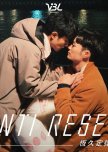
Produced by Vidol, the Taiwanese streaming platform that has made the aforementioned BL series, the special episode brings us back to Chu Yi Ping, the emotionless university professor with few social skills who learns what it means to be human when he meets Huang Li Feng, an android caretaker who inadvertently steals her heart.
Full of romantic scenes, the special episode will take us, along with the two young people, on a trip to a playground in Taipei, the capital of Taiwan, a place where lovers will visit to enjoy a tender and warm day of walking and romance.
Starring Wu Ping Chen ('Stay by My Side', 'One Afternoon', 'Komorebi'), as Yi Ping, and Huang Li Feng ('Stay by My Side', 'The Ambiguous Focus', 'Kinematics' Theory', 'The End of Our Youth') embodying Ever 9, the episode will confirm to viewers that the couple is happy and plan the future in the company of each other.
The audiovisual in turn will allow the viewer to appreciate the resumption of family ties between Yi Ping and his uncle and creator of Ever 9, after the events narrated in the series.
Directed by Lian Yu Zhe, who is also in charge of directing 'VIP Only', the episode, which lasts just over 24 minutes, also returns to Jiang Chi (Isaac Yang) and Gu Bu Xia (Hong Wei Zhe ), the protagonists of 'Stay by My Side' and 'Stay by My Side Special, who on this occasion will coincide with the main couple at the amusement park.
Based on the script written by Cai Fei Qiao, Kao Ru Ping and Nikki Hsieh, 'Anti Reset Special' has another important mission: to close the special episodes of the four Vidol BL series broadcast until today.
I only have one question: Vidol, what do you have in store for us right now?
Was this review helpful to you?
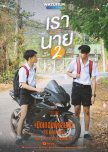
Love conquers homophobia and internalized homophobia
When a movie touches me, the images continue rolling in my mind after the lights go out, the frames stop.In a natural setting illuminated by sunlight, on any given school day, anywhere in the suburban geography of Chiang Mai, Thailand, a teenager is determined to accept his own homosexuality in front of others, even knowing that this step can represent for him the hatred, discrimination and intolerance of those who hate, reject and fear homosexuals.
Motor, which is the name of the young man, played by actor Jo Ronaporn Vipataputi, known for his performances in 'My Streamer', 2023, 'Boy Scouts', 2022, 'My Star' and My Star: Uncut Version', both the 2024, he has lost his fear of making himself visible, and is ready to leave behind his heterosexual image with which he has always intended to "be cool in front of others."
He has been involuntarily led to this decision by Gentle, the boy he loves, played by Fongfong Pathomporn Panfa ('My Star' and 'My Star: Uncut Version' 2024), a teenager who is clear about his sexual orientation and lives it without fear, guilt or shame, who, feeling despised by Motor, has chosen to distance himself.
Questioned by Gentle about his attitude, Motor will respond that his behavior consists simply of trying to please others. And Gentle responds: "Being cool isn't about who sits on your bike. It's up to you if you treat people differently."
Motor will not know the meaning of this answer. Motor is unaware of his internalized homophobia and denies it. Motor goes to great lengths to hide the shame and guilt of living his sexual orientation. Not wanting to make others uncomfortable, not wanting to change the image that others have of him, has led him to deny something that is part of him, something that is himself.
However, Gentle's message is clear. Nobody likes to feel stigmatized and rejected. But isn't Motor more afraid of his self-rejection? Isn't it worse to feel shame, disgust, anxiety, and even have behaviors of avoidance or denial of everything related to homosexual orientation due to fear of being rejected?
If in 'My Biker' it is Gentle who pulls the strings of dramatic tension by recognizing that he loves another man, Motor, the heterosexual teenager who in that 2023 film receives the confession of love from his friend, today expresses the conscience of those who are going to fight for their place in the world, even if this means that they have to suffer the hatred and discrimination of homophobes.
The short film, scripted and directed by Nitchapoom Chaianun (Nicchi), delves into the romantic story begun in 'เราและนาย My Biker', between a high school student who falls in love with his heterosexual best friend.
Produced by Wayufilm Production, in association with Pigeon Pictures, 'My Biker 2' contributes to changing the way society views members of the LGBTIQ+ community, especially in countries that, like Thailand, still refuse to recognize equal marriage and where discrimination against gays, lesbians, bisexuals and other members of that human community persists.
'My Biker 2' reminds us that not everything is always "so pretty", as many BL fans seem to believe, and that there is still a long fight ahead.
Works like this should appear from time to time on the screens of many lovers of the genre, so in need of shaking off so much emptiness.
After watching the series 'To Be Continued' I asked myself: "When will BL series come to reflect the real diversity of the LGBT+ community in Thai society? While dozens of BL series are produced and broadcast every year, the stigma and discrimination against LGBT+ people continue to occur. When will creators and directors of television channels understand that making homoaffective representations in BL series more nuanced and political could bring important and positive changes in a society that begins to observe its diversity through television creations?"
From 'My Biker 2' I could say that I would have liked a little more romantic interaction between the two protagonists, such as a kiss, holding hands or resting their head on the other's shoulder. I could express my dissatisfaction with the way in which the existence of a romance between them is evident before the final scene. I could state that I am not entirely pleased with the way in which the pain is shown in young people when they perceive that their romantic relationship is at mortal risk, but I prefer to remain with the conviction that 'My Biker' contributes to the struggle of LGBTIQ+ people.
It is not just the sunlight that illuminates the stage at any point in the suburban geography of Chiang Mai, on any given school day. Together with the Astro Sun, the light of hope also shines. This is its main message.
Was this review helpful to you?

This review may contain spoilers
It invites us to reflect on homophobia, equality and non-discrimination
'Faded' (淡淡/ Dan Dan) tells the moving story of Tian Yu, a Chinese high school student who lives a secret love relationship with Jun Zhi (Arthur Tan / Jun Yi Tan), a boy with whom he discovered his sexual orientation.Tian Yu, played by Soo Xu Zhe, a Chinese actor known for his participation in the films 'Do You Love Me as I Love You' (2020) and 'Dear Ex' (2018), is struggling with his sexual identity and finds himself caught between fulfilling his filial duty as an only child and the desire to be honest with himself and his mother (Seck Fook Yee).
Tian Yu's internal conflict worsens when the mother discovers her son's homosexuality, through a photograph that someone secretly sent to her cell phone, and confronts Jun Zhi about the relationship.
However, the mother does not act in a homophobic manner, as she is actually afraid of the repercussions of her son coming out of the closet.
Through his relationship with his mother, Tian Yu will have the courage to face his fears and insecurities, and finally admit to her his homosexuality, in addition to asking her for understanding about his desire to maintain the relationship with the boy he loves.
'Faded' is a small, amateur short film that intimately and emotionally addresses universal themes such as the search for authenticity, personal acceptance and coming of age.
With the message "Love is the same for all genders", it also invites us to reflect on homophobia, equality and non-discrimination.
Released on October 23, 2017 in China, the 15-minute film is written, directed, starring and produced by Arthur Tan Jun Yi Tan, who is also the performer and composer of the eponymous musical theme that serves as the soundtrack. to the short film.
Was this review helpful to you?

Miniseries in which Tar and Bom break the fourth wall and stand out for their joy and monologues
The miniseries 'You Made My Day' (Thai title ชื่นใจไปทุกวัน), also known as 'Refreshed Every Day', 'You Make My Day', 'Chuenjai Pai Tuk Wan' and 'Chuenchai Pai Thuk Wan') us brings back to the screen the actors Tar Atiwat Saengtien and Bom Tanawat Uthaikitwanit, the protagonists of the LGBT+-themed comedy-drama 'I Will Knock You', broadcast by AIS Play and Channel 3, between November 2022 and February of the following year.Those people who, like me, enjoyed the story that revolves around the romance between "Thi" Thiwa Ananbhuchai, the boy who combines his university studies with his part-time job as a tutor, and Noey Watphlu, the leader of a gang, that behind the tough guy façade there really is a noble and ridiculously stupid boy, now you will have the opportunity to see these two actors again in a miniseries of 5 episodes of about 8 minutes each.
Playing themselves, the two protagonists of 'I Will Knock You' give us a beautiful story about two friends who, driven by circumstances, fulfill a mission every day, such as preparing a surprise party for Tar's mother or traveling the city looking for Bunny, his missing dog.
In this way, the series invites us to travel with the protagonists through the streets of Bangkok, visit its temples, monuments and other sites of historical and cultural interest, appreciate Thai cuisine, navigate the rivers that cross said capital, while we learn about various interesting aspects of the Southeast Asian country.
With the aim of promoting Minzz inhalers, we could define 'You Made My Day' as a commercial advertisement turned into a miniseries. This type of television product fails to win over BL followers. However, due to the lack of budget, many creators and actors have had to accept financial proposals from companies to carry out their projects.
I like the way in which, indifferently, both actors become main narrators and break the fourth wall by addressing the viewer to introduce themselves or ask them to encourage them to carry out the missions to be carried out in each episode, causing the audience to form part of the work.
I like the way in which, indifferently, both actors become main narrators and break the fourth wall by addressing the viewer to introduce themselves or ask them to encourage them to carry out the missions in each episode, allowing the audience to become part of the work.
Likewise, I like the monologues that the characters use, now one, now the other, to define traits of their personality or so that the audience can get to know their most intimate thoughts without the need for a narrator to intervene.
Tar and Bom carry on their shoulders a miniseries full of sweetness and tenderness, in which the chemistry and charisma of the characters, the festive color palette, the music and the contagious joy of the protagonists, make us all hope that a From moment to moment the two friends become lovers.
There are still three episodes left until the conclusion of 'You Make My Day'. We will continue to support the miniseries until the end.
Was this review helpful to you?
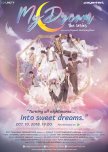
This review may contain spoilers
The loss of innocence
In a confusing way, 'My Dream' explores the loss of innocence, as it follows the lives and relationships of five young people who are united by friendship, love and blood: Runway (Best, Cholsawas Tiewwanichkul), the main narrator; his friends Guide (Fame, Chawinroj Likitchareonsakul) and Yim (Ellfa, Chollatee Bampen), Doctor Good (Boom, Jiratpisit Jaravijit), Guide's brother, and Tanai (Taro, Shatree Suwanvalaikor), Runway's athletic, slightly older neighbor than him, who is in love with the young protagonist.Directed by Job Piyawat Chaithiangthum, at the time of its premiere in 2018, the series 'My Dream' meant a pleasant change within the BL universe with the mixture of youth themes, romance, fantasy and supernatural.
Runway is a brilliant high school student marked by nightmares since the death of his father. Thanks to her father's old dream catcher placed near her bed, Runway manages to fall asleep, in which a mysterious man named Dream (Fluke, Pongsapat Kankam) appears to her.
However, Runway, who lives alone with his mother, has not created an imaginary friend in his mind, but rather an imaginary lover who makes the teenager not only fantasize and invent various conversations and situations, but also leads him to confuse fantasy and reality.
Instead of helping Runway find an escape from the situation, Dream, who has been present in Runway's dreams since he was a baby, will help immerse him further and further into an imaginary world that will be difficult, if not impossible to escape.
Dream won't stop the teen from interacting with other humans, but he will be upset when Runway comes into contact with Tanai, the boy who has a crush on him. This is how Runway will ignore Tanai's declarations of love and her constant worries about him.
I don't like Tanai that she loves Runaway because "she sees him as a girl."
Runway's personality is wonderful, being the good son and good friend of his friends, always attentive to the feelings of others.
At the end of the series we will see a meeting between Runway and Dream in the real world, and thus we will have new elements about the relationship that exists between Dream and Elle and the bond between both of them with the dreamcatcher, since Elle will be Dream's companion on that occasion.
Another of the main characters is Guide. This intelligent high school student tries to help Runwai deal with both the imaginary relationship and the real world, but everything changes when he suspects that his girlfriend Yaimai (Noon, Pitchatorn Santinatornkul), has been unfaithful, and decides to separate from her afterward of three years of courtship.
At the same time, Guide begins to feel attracted to Tanai.
Regarding the character played by Noon, I don't like that she doesn't mind sharing Guide with as many men as he wants to be with, as long as she allows her to be the only girl. I don't understand these types of female characters obsessed with boys who have lost interest in girls, among other reasons because they are homosexual. Instead of accepting to be her friend, Yaimai will try again and again to get Guide to return to her side, causing tensions between the two and their family and friends.
For his part, Yim, who has lived his adolescence without complications, will suffer a sexual violation and will find supportive arms in Runway and Tanai, to whom he confesses what happened.
I don't like how Yim's rape story is handled.
Not even Tanai, because he is of legal age, suggests that he seek justice and report the sexual assault, after Yim demonstrates that he feels affected by the events. On the contrary, we see the boy being driven home by the rapist in the same car with which he was previously taken to the place of the rape, which would mean greater stress and suffering for a person after suffering a tragedy like this.
Other scenes, such as the "farewell" kiss when the rapist finally recognizes his mistake and asks for forgiveness, also make it seem like Yim suffers from Stockholm Syndrome.
It is true that Tanai hits the aggressor, but this seems insufficient punishment to me, since the possibility of the rapist acting in the same way in the future remains latent.
These events contribute to the loss of innocence of adolescents.
At the same time, the young doctor Good will be trapped in a strange supernatural relationship with a mysterious girl who turns out to have the appearance of Kafe (Anna Glucks), his old girlfriend who died in an accident five years ago, but in truth is a strange being who He changes gender depending on whether he comes into contact with the water, because when he is dry he transforms his appearance and becomes a boy named Elle (Choot, Cherdchanin Vitapinan), who is somehow connected to the dreamcatcher and the tragic outcome that cost him life to the woman that Good still has not been able to forget.
The three teenagers will lose their innocence when each one knows pain, evil, and deception. As the series progresses, Runwai, Guide and Yim will realize that things in real life are different from how they saw them.
The series also tells us about coming of age and that, coupled with the loss of trust in the world, human beings can activate their capacity for resilience based on affectivity. The more love and understanding the characters receive, the greater their ability to overcome obstacles.
After the dreamcatcher is burned, Runway wakes up from a coma and asks for Tanai. He is worried about him, but not only in the sense of knowing his state of health after the accident.
Upon arriving home and left alone with Tanai, Runway laughs at Tanai's jokes for the first time. He has lost his innocence. And Tanai asks him again the question of whether he can take care of him, in the sense of whether he can be his partner. And if until that moment he had rejected it, Runway asks him for time to think about it, a response that makes Tanai happy.
In the next dream, for the first time Runway finds Dream and her father in the same vision. Call the father. But when you look at the place where Dream was, it is no longer there. It seems that Dream has recognized that Runway has chosen to be with her father.
However, instead of moving forward, the series goes backwards, keeping Runway lost between fantasy and reality. Apparently, the creators thought to resolve this situation in a second season that never arrived, leaving all the stories unfinished.
Some viewers will point out that the series is slow in the sense of the action of the actors' and actresses' movements being slow, but I consider that the long shots and wide spaces for reflection do not make 'My Dream' boring. On the contrary, the slow rhythm has been used with precision in the Thai series, and the music and other arts related to television easily adapt to the feeling that the musical themes and the story have wanted to express.
Likewise, the static camera and silences contribute to telling the story and recreating the general feeling of the series. What is interesting is how 'My Dream' takes its time to build the stories and characters step by step.
What I enjoy most about the series is the slow and wonderful relationship that Guide and Tanais have been weaving. Fame achieves a good performance by showing how his cute character falls in love with Tanai, who in turn has been in love with Runway, but he remains obsessed with Dream.
The moments of interaction between Guide and Tanai are wonderful. Among these, the kiss on the beach or the one that the two enjoy in front of the door of Guide's house when Tanai takes him on his motorcycle and says goodbye to him at night before Yaimai's prying eyes. Or when Tanai places food on his plate while the three teenagers and Tanai's friends celebrate the latter's birthday.
It is extraordinary how the characters show the relationship that they have been developing in silence, even with their backs turned to themselves, and how they transmit anxiety, restlessness, nervousness... all those common symptoms that can surprise people in love.
I must also highlight how striking it is that the characters do not react with surprise to the supernatural phenomena they are forced to face. Accepting the supernatural without drama contributes to the development of the story, since it is evident that all the mysterious supernatural events and characters have the dreamcatcher in common.
We will be looking forward to seeing Yim and Asawin (Beer Rapeewish Sangiamwong) interact, since we only got to see it for a few minutes in the final episode. The chemistry between the two characters is undeniable. In case of a second season, I would be interested in seeing the evolution of this couple and that of Tanai and Guide.
Was this review helpful to you?

The viewer will be able to enjoy the intimacy that arises between the two young people in a visually beautiful way, despite both deciding to take the nascent relationship calmly.
I find the format of the show interesting, in which Miss Becky (Ameer Sanchez) presents real-life stories from members of the LGBTQ+ community each week.
I also feel that it has been beneficial to start the program with a story in which we have Hiro Shimoji as the protagonist, due to the connection that this young Filipino actor has achieved with the audience in the series 'Our Story' and 'My Story', both from 2023.
The first episode of 'Dear Miss Becky', a web series produced and directed by Xion Lim, explores the idea that true intimacy can be found in the simplicity of sleeping next to someone, transcending the physical act of sex, while alerting us about the fragility of human life.
Likewise, it gives us a message that love is more than a physical attraction and lovers must give value to the time they shared with the loved one, allowing them to keep alive the connection they were building before the occurrence of an event beyond their control will that separated them.
The episode focuses on the characters of Bryan and Alex, played by Hiro Shimoji and Thirdy Galvin, respectively. The chemistry between the actors is palpable, allowing the viewer to appreciate how the relationship deepens on screen. As the story unfolds, their interactions are conveyed through silence, abstract soundscapes, and textured cuts, creating a captivating visual experience that immerses the audience in an emotional journey.
In the same way that the character of Miss Becky fails to convince me, Xion Lim as a producer and director still fails to capture me with any of his stories. I still remember how it ruined the relationship between Zeke and Fifth, preventing this ship from being one of the most popular within the LGBT+ genre, not just in the Philippines.
If, on the one hand, the weak script fails to develop the characters, their conflicts and events well, the possibility of improvising allows genuine and authentic moments to emerge, especially in Hiro's performance.
With impressive daytime and nighttime images of the Philippine beaches, I think it is positive that Hiro has a new partner, since this actor can perform well in roles as a young homosexual in LGBT+ themed series, while Jericho Del Rosario, his co-star in 'Our Story' and 'My Story', he never seems to have been comfortable with his partner or the fanservice, which is very regrettable due to the visual attraction that the couple did not know or could not exploit.
Was this review helpful to you?

The young man is not forced to invent the boy of his dreams (the film does not, therefore, resort to fantastical elements), but suddenly the dream boy comes true in the form of an irresistible neighbor who has just moved into the next room, and whom he just met in the building's elevator while returning home from the market with purchases.
This film starts with a certain feeling of "déjà vu", since the young protagonist seems to be experiencing over and over again the new situation of meeting the other boy upon returning from the market, but which in reality has never happened.
In its 22 minutes divided into two parts, 'Me and Us' manages to stand on the presentation of its protagonist and his neighbor, who to make matters worse will make him feel uncomfortable in his own home, but he will not mind losing the freedom and solitude he longs for. because he does not regret having the person he loves by his side.
Was this review helpful to you?


 1
1 1
1 2
2

















